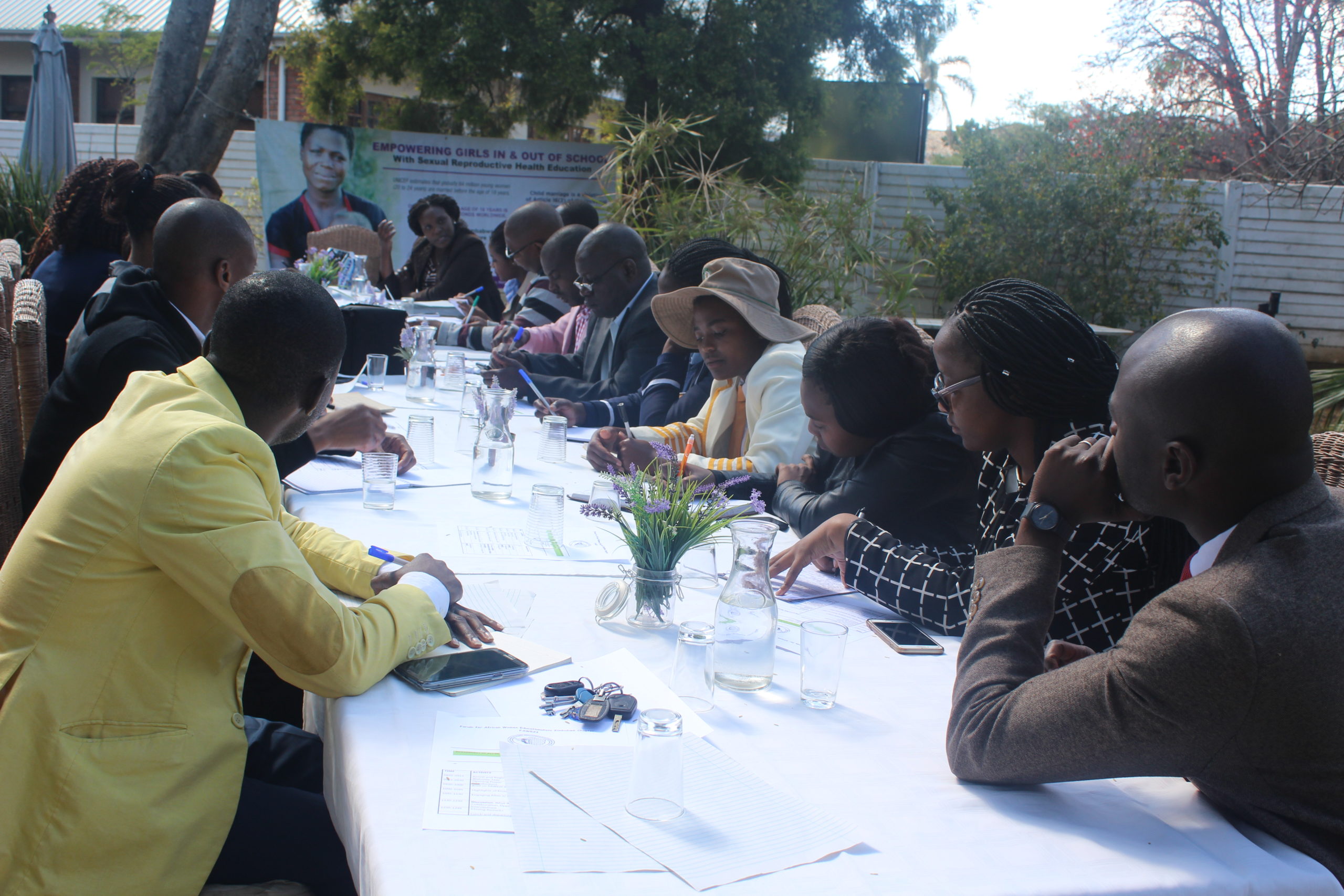By Byron Mutingwende
It is six o’clock in the evening at the Booster area in Mabvuku and Kumbirai (13) is wearing a skimpy dress revealing a greater proportion of her thighs. A street party is just about to kick off and music is already booming from the titanic loudspeakers. For her age, Kumbirai is not even shy to solicit for sex from older men.
Nearby is an abandoned recreational park whose facilities like the gym and basket court have been converted into a car park. In trying to understand what may be driving young girls into commercial sex work at such a tender age, Gladys Phiri, an independent sexual and reproductive health (SRHR) consultant says adolescents nowadays are experimenting with information they get from the Internet about sex.
“There are a number of factors driving adolescents into sex. You may realise that students are not taking guidance and counselling education in schools seriously. The lessons on SRHR are not conducted in a youth-friendly manner and the teaching material is outdated. Also to blame is the poor parental guidance on sex and sexuality issues,” Phiri said.
Phiri blamed the Mabvuku-Tafara and the Caledonia community for its complicity in driving prostitution and commercial sex work among adolescents and young girls because the places where these young people engage in such clandestine activities are known but nothing is being done. Certain spiritual leaders and traditionalists who provide charms to the girls to attract men and solicit for sex are known but they are not reported to the law enforcement agents.
“It seems that there is no longer any social accountability at the community level. Community policing is totally absent in these areas. It is important to bring back the community to realize that allowing such is condoning a social ill that can affect the entire moral fabric and the future development prospects of the community,” Phiri added.
In Epworth, in the new housing schemes, there are limited extra-curricular activities to provide recreation to young boys and girls. As a result “movie cabins” where blue movies on pornography are rampant and the adolescents engage in unprotected sex, a situation that is leading to an upsurge in cases of sexually transmitted infections.
A teacher from Mabvuku who requested anonymity said that pornography was rampant in schools. At a school whose identity will be protected for security reasons, the teacher realised that in one of his lesson sessions, certain boys who sat at the back of the classroom were watching pornography and masturbating in class.
Drug abuse is also being blamed for fuelling the SRHR challenges in Mabvuku-Tafara. Vegetable vendors also sell drugs to young boys and girls. The lack of coordination among stakeholders in SRHR interventions and programming is fragmenting the population in terms of how to address the problem.
Munyaradzi Nhengo, a programme officer of the Padare/Men’s Forum said men were an important ally in the SRHR interventions, because they are the ones who buy and solicit for sex, give away girls in marriage and benefit from practices like lobola.
“We should not ignore the common and permanent feature of a man within the SRHR matrix. It should be noted that the major positions of influence in patriarchal societies like ours are the domain of men. The majority of them are church, business and religious leaders hence they must be involved in SRHR discussions and programming,” Nhengo said.
Other important allies in SRHR issues include the church, schools, Parliamentarians, councils and the media among others. Nhengo said there was need to consider embracing reflective practices for the purposes of transforming the negative social norms rampant in society. He underscored the importance of bringing different competencies and strengths towards creating spaces for children to thrive in a positive way.
Lydia Madyirapanze, the National Coordinator of the Forum for African Women Educationalists – Zimbabwe Chapter (FAWEZI) said her organisation is implementing a project on Sexual Reproductive Health Rights (SRHR) for adolescent girls in the Epworth-Mabvuku-Tafara District of Harare Province in Zimbabwe from June 2016 to May 2018. In its work to promote the education of girls, FAWEZI realises the challenges faced by girl in their adolescents such as lack of comprehensive information on SRHR, a cloak of silence in the area of sexuality, and poor choices leading to HIV/AIDS, STIs and teenage pregnancies.
“Additionally, prostitution has become rampant such that they end up exposed and in early sexual activities which then corrupt their sexual integrity through pregnancy, HIV/AIDs and other STDs, forced or early marriage, rape, and sexual harassment. According to the 2012 census, 56 799 children aged 15-17 years were married, with a greater proportion for girls (12 percent) having been married than boys (0.9 percent),” Madyirapanze said.
In the 2012 Census, very high proportions (92.7 percent) of the married children were girls. Poor choices about sexuality push adolescent girls out of school. A study by UNFPA (2007) shows that for each extra year of education obtained by mothers, there is a 5-10% reduction in the mortality rate for their children under the age of 5. According to a World Bank report, a one percentage point increase in female education raises the average level of GDP by 0,3 percentage points. FAWEZI therefore seeks to enhance the SRHR for adolescents in and out of school through joint advocacy efforts, life skills trainings and educational support using evidence based programming.
Madyirapanze added that the project seeks to achieve the following establish major gaps in SRHR knowledge/attitudes/behaviour and synthesize for evidence based advocacy; empower a critical number of adolescents with SRHR education and establish inclusive networks with partnerships established with non-traditional SRHR allies including religious leaders faith movements youth groups, social justice research and media among other objectives.
Service providers are also being engaged to actively support SRHR programmes for adolescents. FAWEZ is also conducting Joint advocacy activities with other civil society organisations.






